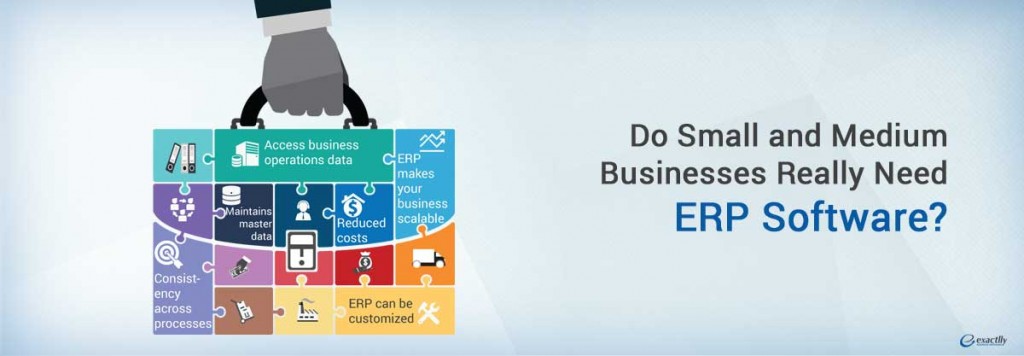ERP Systems: A Comprehensive Guide to Enterprise Resource Planning
Introduction
In today’s competitive business landscape, organizations are constantly seeking ways to streamline operations, improve efficiency, and gain a competitive edge. One solution that has gained widespread adoption is the implementation of an Enterprise Resource Planning (ERP) system. An ERP system is a comprehensive software solution that integrates various business functions, providing a single platform for managing and optimizing operations.
What is an ERP System?
An ERP system is a software suite that provides a unified platform for managing core business processes, such as:
- Financial management
- Supply chain management
- Customer relationship management
- Human capital management
- Manufacturing and operations
 .
.
ERP systems centralize data and processes, allowing businesses to eliminate redundancies, improve collaboration, and gain real-time insights into their operations.
How Does an ERP System Work?
ERP systems typically consist of a central database that stores all business data. Modules for each functional area, such as finance, sales, and manufacturing, are integrated with the database. Users can access the system through a graphical user interface (GUI) or web-based portal.
When a user enters data into one module, it is automatically updated in the central database and becomes available to other modules. This ensures that all departments have access to the same up-to-date information.
Benefits of an ERP System
ERP systems offer numerous benefits to businesses, including:
- Improved efficiency: By streamlining processes and eliminating redundancies, ERP systems can significantly improve operational efficiency.
- Enhanced data accuracy: Centralizing data in a single database ensures data accuracy and consistency across the organization.
- Increased collaboration: ERP systems facilitate collaboration between different departments by providing a shared platform for communication and data exchange.
- Better decision-making: ERP systems provide real-time insights into business performance, enabling managers to make informed decisions.
- Reduced costs: By automating processes and eliminating redundancies, ERP systems can help businesses reduce operating costs.
 .
.
Disadvantages of an ERP System
While ERP systems offer many benefits, they also have some potential disadvantages:
- High implementation costs: ERP systems can be expensive to implement, requiring significant upfront investment in software, hardware, and consulting services.
- Complexity: ERP systems are complex software solutions that require extensive configuration and customization to meet specific business needs.
- Data migration challenges: Migrating data from legacy systems to an ERP system can be a complex and time-consuming process.
- Training requirements: Users need to be trained on the ERP system to ensure effective utilization.
- Vendor lock-in: Businesses may become dependent on the ERP vendor for ongoing support and upgrades.
Essential Information About ERP Systems
- Types of ERP Systems: There are two main types of ERP systems: on-premise and cloud-based. On-premise ERP systems are installed and maintained on the company’s own servers, while cloud-based ERP systems are hosted by a third-party provider.
- ERP Implementation Process: Implementing an ERP system typically involves several stages, including planning, software selection, configuration, data migration, testing, and training.
- ERP Vendors: There are several leading ERP vendors in the market, including SAP, Oracle, Microsoft, and Infor. Each vendor offers a range of ERP solutions tailored to different business sizes and industries.
- ERP System Integration: ERP systems can be integrated with other software applications, such as CRM systems, e-commerce platforms, and business intelligence tools.
- ERP System Maintenance: ERP systems require ongoing maintenance to ensure optimal performance and security.
Frequently Asked Questions (FAQs)
- What is the cost of an ERP system? The cost of an ERP system varies depending on the size and complexity of the business, the number of users, and the vendor selected.
- How long does it take to implement an ERP system? The implementation timeline can vary from several months to several years, depending on the factors mentioned above.
- What are the key factors to consider when selecting an ERP system? Factors to consider include business size, industry, functional requirements, budget, and vendor reputation.
- How can I ensure a successful ERP implementation? Successful ERP implementations require careful planning, vendor selection, user training, and ongoing support.
- What are the common challenges faced during ERP implementation? Common challenges include data migration, user adoption, and process changes.
- How can I measure the ROI of an ERP system? ROI can be measured by tracking improvements in efficiency, cost reduction, and customer satisfaction.
- What are the latest trends in ERP systems? Cloud-based ERP, artificial intelligence, and machine learning are emerging trends in the ERP market.
- How can I find an experienced ERP consultant? Look for consultants with industry experience, technical expertise, and a proven track record of successful ERP implementations.
- What are the best practices for ERP system maintenance? Best practices include regular software updates, security audits, and user training.
Conclusion
ERP systems play a crucial role in modern business operations, providing a comprehensive platform for managing and optimizing core business processes. While ERP systems offer numerous benefits, it is important to carefully consider the potential costs and challenges involved. By understanding the advantages and disadvantages, essential information, and frequently asked questions about ERP systems, businesses can make informed decisions about their ERP investment.
Disclaimer
This article provides general information about ERP systems. It is recommended that businesses consult with experienced ERP professionals to determine the specific requirements and benefits of an ERP system for their organization.
 .
.

